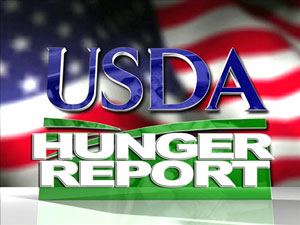-Staff Writer-

(FinalCall.com) – Louisiana leads the nation in hungry children. In fact, one in four children are food insecure–unable to consistently access adequate amounts of nutritious food that is necessary for a healthy life.
But the problem is magnified for Black children.
According to the 2009 report on Household Food Insecurity in the United States nearly two million Black households with children were food insecure at least some time during the year, an increase of 25 percent over 2007. In 2008, there were 3.76 million non-Hispanic White households with children that were food insecure.
The study also revealed that 146,000 Black households with children–a 92 percent increase over 2007–experienced very low food security, meaning that the food intake of one or more of household children was reduced and their eating patterns were disrupted at times during the year because the household lacked money.
For Black children this translates to infants that are more likely to suffer developmental delays leading to behavior and learning problems. Hungry children, according to the Community Childhood Hunger Identification Project, are less likely to interact with other people, explore or learn from their environment.
Hunger has a negative impact on children’s ability to learn in school. School-aged children who are hungry cannot concentrate or do as well as others on the tasks they need to perform to learn the basics.
“Importantly, these numbers reflect the state of the nation one year ago, in 2008. Since then, the economy has significantly weakened, and there are likely many more children of varying ethnicities struggling with hunger than this report states,” said Vicki Escarra, president and CEO of Feeding America, .
“The first three years of life are the most critical period of brain growth and development. Child hunger causes physical and mental impairment that may never be reversed,” said researcher John Cook, Ph.D., of the Boston Medical Center and Boston University School of Medicine, a nationally-recognized expert on child hunger, who conducted an analysis of child hunger for ConAgra Foods.
Liz Washington didn’t realize just how hungry her children were until she took them over her friends’ homes.
“They were always eating everything like I hadn’t fed them and they had just ate. I started thinking maybe they were still hungry. I started thinking maybe I need to feed them some more but I never have enough food so where was some more going to come from?” she said to The Final Call.
“The startling fact that so many very young children in this country do not have adequate nutrition necessary to grow and develop into healthy adults is heartbreaking,” said Ms. Escarra.
“It is all the more tragic when one considers that it is also entirely preventable,” she added. “We know that a child who is hungry and cannot learn becomes a man or woman who cannot earn.”
While Louisiana may lead the country as the state with the highest number of food insecure children there are countless other children across the country who also go to bed hungry.
The U.S. Department of Agriculture’s Economic Research Service reported Nov. 16, that almost one in four children living in the United States are food insecure.
Conducted in September, the Feeding America study shows that more than half of its network food banks reported seeing more children as clients. “Feeding America will continue to focus on expanding programs to hungry and at-risk kids to ensure that our future engines of economic growth are strong adults,” said Ms. Escarra.












